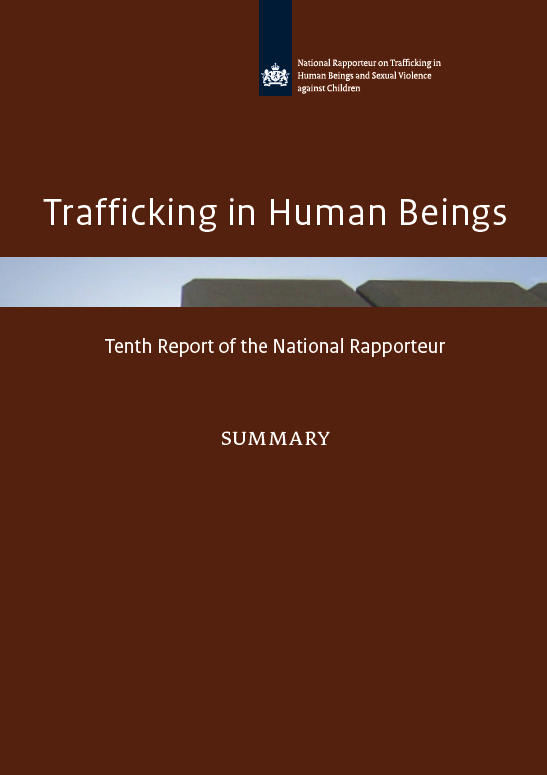Tenth Report of the National Rapporteur on Trafficking in Human Beings
According to the Dutch Rapporteur on Trafficking in Human Beings and Sexual Violence against Children, medical professionals could play an important role in identifying human trafficking. In the Tenth Report on Human Trafficking, published on 9 November 2017, the results show that 50 per cent of medical professionals come into contact with patients whom they suspect to be victims of human trafficking. Yet, few medical professionals received training and say they know how to recognize and respond to signs of human trafficking.
Medical professionals lack a thorough knowledge of human trafficking. ‘In one case a victim needed medical attention 17 times and visited several doctors, but none of the doctors recognized the signs of exploitation and abuse,’ says the Dutch rapporteur. The study shows that 50 per cent of medical professionals have been in contact with patients whom they suspect to be victims of human trafficking, but there is little follow up. ‘It is important that medical professionals are being trained in recognizing and reporting signs of human trafficking’, says the Dutch rapporteur. ‘It is positive that more than three-quarters of the medical professionals say they would be interested in receiving training.’ To provide medical professionals with the proper guidance, the Dutch rapporteur recommends that the subject of human trafficking should be incorporated into the Reporting Code on Domestic Violence and Child Abuse.
Protection of non-Dutch victims is insufficient
The study of the Dutch rapporteur also looked at the protection offered by the Netherlands to non-Dutch victims of human trafficking. There is a special policy for these victims, which states that victims must be offered a reflection period, in order to give victims an opportunity to consider whether to cooperate with an investigation into the trafficker. During the reflection period, they cannot be expelled from the Netherlands and are entitled to protection. However, there are significant differences between decision-makers offering the reflection period (police, Royal Netherlands Marechaussee, Inspectorate SZW), so victims that should be offered the reflection period, do not always receive this protection. The Dutch rapporteur: ‘It shouldn’t matter if someone from the Inspectorate or the police handles the case: all victims of human trafficking deserve the same protection according to the same rules.’

Municipalities fail to address human trafficking
Another finding of the report, is that just over 35% of Dutch municipalities do not know whether human trafficking occurs in their region. This applies mainly to smaller municipalities (up to 25,000 inhabitants). The Dutch rapporteur finds this worrying, since human trafficking is not something that only happens in larger municipalities.
Municipalities are responsible for the provision of care and shelter for victims. Moreover, they could identify victims of human trafficking and use municipal enforcement instruments to go after perpetrators of human trafficking. Yet more than 95 per cent of municipalities do not have a specific policy to combat human trafficking. ‘Previous research has shown that only 1 in 6 victims are identified’, says the Dutch rapporteur. Significant efforts will have to be made to increase the engagement of municipalities in combating human trafficking, for example by formulation of policy on human trafficking at a municipal level. ‘We need to ensure that every municipality is capable of preventing and recognizing human trafficking, in order to protect victims and find perpetrators.’
Follow up in 2018
Since the publication of the Dutch report on 9 November 2017, the Dutch government has taken note of the recommendations made by the Dutch rapporteur and published the National Action Programme Against Trafficking in Human Beings on 13 November 2018.
As recommended by the Dutch rapporteur, human trafficking is now incorporated into the mandatory Reporting Code on Domestic Violence and Child Abuse. Moreover, municipalities have agreed that they will develop a policy on human trafficking at the municipal level within the next four years. The Aliens Act implementation guidelines have also been adjusted, in order to ensure uniformity between the partaking organisations with regards to the application of the reflection period.